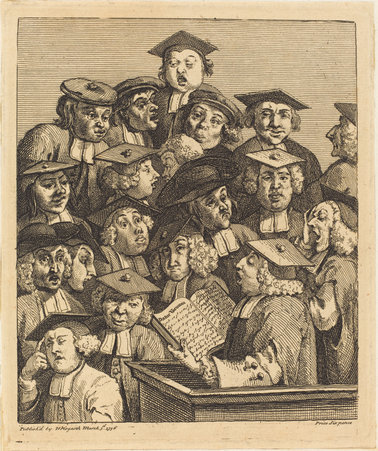 I attend a lot of lectures and talks, and even if I am "off the clock" I can't help but judge, at least a little. How does the speaker hold my attention? To what degree (if any) is the speaker audience-centered? How does the speaker demonstrate credibility and good will? I have sat through introductions of experts with impressive credentials, who then turn out to be boring, self-centered duds. But last weekend I attended a lecture given by a master of the craft. I was visiting Union College and was lucky enough to hear Prof. Stephen M. Berk speak. A great faculty lecture is a wonderful thing, and hearing Prof. Berk talk reminded me that we can learn a lot about public speaking from such an experience. Since faculty lecturers are also teachers, they have always have a clear intention when speaking: to share their knowledge with the students. Or, in Prof. Berk's case this past weekend, with the larger college community.
I attend a lot of lectures and talks, and even if I am "off the clock" I can't help but judge, at least a little. How does the speaker hold my attention? To what degree (if any) is the speaker audience-centered? How does the speaker demonstrate credibility and good will? I have sat through introductions of experts with impressive credentials, who then turn out to be boring, self-centered duds. But last weekend I attended a lecture given by a master of the craft. I was visiting Union College and was lucky enough to hear Prof. Stephen M. Berk speak. A great faculty lecture is a wonderful thing, and hearing Prof. Berk talk reminded me that we can learn a lot about public speaking from such an experience. Since faculty lecturers are also teachers, they have always have a clear intention when speaking: to share their knowledge with the students. Or, in Prof. Berk's case this past weekend, with the larger college community.
That drive, that visceral need to share what he knows with his audience, may be the biggest factor separating a good professor from a great one. All professors are subject matter experts. They all know their stuff. But the great one goes the extra distance. She breaks down her material in steps that can be easily digested, understood. She leads her listener on a journey of understanding as she tells a story, with a beginning (introduction of concepts), middle (elaboration of these concepts), and end (wrap-up of what these concepts mean to us).
Teaching is storytelling. The listeners/students learn from the story. Prof. Berk is a history professor, so his lectures are filled with small stories, all in service to the larger over-arching story of his thesis. But what if your subject matter does not obviously lend itself to telling tales? They are there, trust me. You may need to dig to find them, but it is worth the effort. As I tell my science and tech clients: the easiest way to get people to understand what you are telling them is to construct a narrative scaffold, some structure on which to hang your facts, observations and conclusions. A list of bullet points, no matter how important or ground-breaking, is not a speech. It isn't even an explanation. And it certainly isn't engaging.
I have heard Professor Berk speak three times now, and he always manages to deliver right-sized speeches that contain the perfect blend of fact, analysis, connective story, and humor. Without notes! Some of his appeal lies in his native manner of speaking. He has a wonderful Borsht Belt rhythm to his delivery that serves him well. I have even heard him tell his "signature" story three times, but it always sounds fresh. But his is a rare talent, refined over almost five decades of teaching. Most of us will never attain his level. But his example can offer us insight into what it takes to be a great speaker: the more you do it the more you know what you need to do—in terms of preparation of material, delivery, and practice—to feel comfortable standing in the front of the room.
Illustration: "Scholars at a Lecture' by William Hogarth, courtesy National Gallery of Art

